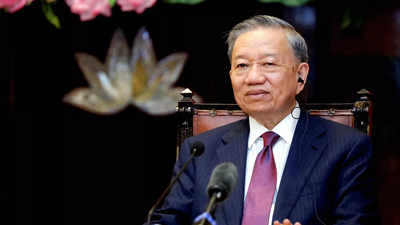
J.P. Nadda, who has been steering the BJP since January 2020, faces a critical period as the party prepares for elections in several key states and the general election scheduled for 2024. While Nadda has played a pivotal role in shaping the party’s strategies and policies, the leadership transition discussions are centered on ensuring the party’s continued dominance and electoral success.
Key figures within the BJP and RSS are weighing several potential candidates to succeed Nadda. Among the names being considered are prominent party leaders with substantial influence and experience. This includes figures with strong organizational skills and a proven track record in mobilizing support and managing electoral campaigns.
The succession debate is not merely a matter of internal politics but a strategic move to address various challenges the party faces. The BJP’s leadership transition is seen as crucial in maintaining its political edge in a rapidly evolving electoral landscape. Analysts suggest that the party's choice for president will significantly impact its ability to effectively counter opposition forces and execute its agenda.
The timing of this leadership decision is significant, as it aligns with the party's need to consolidate its base and reinforce its organizational structure ahead of the upcoming elections. The new leader's role will be critical in navigating the complex political terrain, especially in states where the BJP's position is being contested by strong regional and national parties.
Moreover, the RSS, which has been a key ally of the BJP, plays a crucial role in the leadership selection process. The RSS’s influence in shaping the BJP’s strategic direction and leadership choices underscores the importance of its involvement in the succession deliberations. The organization’s leaders are expected to have a substantial say in the final decision, given their longstanding relationship with the party and their strategic interests.
The internal discussions also reflect broader strategic considerations for the BJP. As the party gears up for electoral battles, the leadership transition is seen as an opportunity to reinvigorate its organizational dynamics and appeal to a broader electorate. The choice of Nadda’s successor will need to address various factors, including regional balance, electoral appeal, and the ability to navigate the political challenges posed by rival parties.
The BJP’s ongoing deliberations over J.P. Nadda’s successor are driven by the need to ensure a strong and effective leadership team in the face of upcoming electoral challenges. The decision will play a crucial role in shaping the party’s strategy and performance in the crucial elections ahead.
